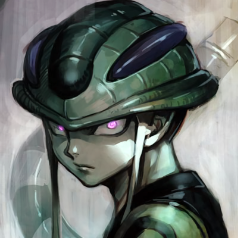This point, even true, falls under the category of the detailed OP in the original presentation. A game is what its maker wants it to be. Pokemon games focus mainly on the exploration of the new region, and the canon ones use the new species as their main attraction point. That was until the audience created new expectations like a more concrete plot with >1dimensional characters and perhaps a difficulty that would strain my 10-yo brother. Adding Hilda's mention of an open-world to explore makes a concrete and solid pokemon game.
However... as obvious the previous mention seemed, the depth one can elaborate on it can amuze people. Zeta/Omicron were successful even without a good enough plot, because their main selling point was the increased difficulty and making the spriting better than the one most players were used to. Reborn is famous because it didn't stop there and included a plot that's still intriguing even if you've already played it once. At the same time, a game is popular thanks to the replay value it gets. That of course needs not come at the expense of not being able to get all pokemon or being restricted in your choices.
That said, I'd like to mention a fault some people make, because they rush things and try to fit in everything together. That's making the plot either too simple or overcomplicated, in order to include the story of the main character, the villains and giving them backstories and a proper incentive, having the gym leaders and other characters affect somehow the plot, and at the same time provide enough lore for the area to make it interesting. The result? People tend to forget certain aspects of the game, or try to mash them in together, leading in a thing that doesn't make sense. Players hate linear gaming as much as they hate having to endure a mindf*ck. That's why, even if you're trying to make the plot alongside with the people that help you create the game in general, you need to have already thought those out, planned your characters beforehand and making sure that all this is actually believable. World-creating is a difficult task, but without it there is no way your game will be as appealing as the aforementioned. Therfore I partially disagree with the statement that you have to plan everything with others as you move forward into completing certain parts of the game, because that includes the danger of the game core getting derailed, and it will show to the audience. That of course has limitations on its own, and it aims to offend no-one, but as the creation belongs solely to one's or a few people's minds before a single line of code is written, it can and it will go off track if everything is put up to debate.









